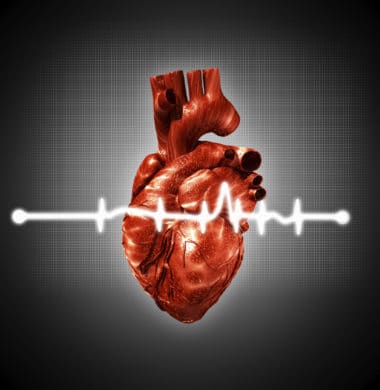A-Fib Treatment Options

Afib is a Common Cardiac Diagnoses
Atrial Fibrillation, or A-Fib, can be a confusing diagnosis for patients, and that fluttering in your chest can be frightening if you don’t know what’s going on. So today we’re talking about A-Fib treatment options for patients, and what can be done. First things first, let’s define A-Fib a little better – it’s a fairly broad term for an irregular heartbeat that may present itself in palpitations, fatigue, and shortness of breath, among other symptoms as well. When you’re diagnosed with A-Fib, one of the most common cardiac diagnoses, you have options.
Atrial Fibrillation Options for Treatment
Do Nothing
If you’re mostly asymptomatic, and no heart damage is being done by your A-Fib, doctors may determine the best course of action is no action at all. Instead, the condition will be monitored with normal and regular checkups, and if symptoms start to pop up, that’s when other treatment options will be considered.
Rate Control
If your symptoms are enough to interfere with your life, that’s when it’s time to consider treatment. Often, the first stage of treatment, referred to as “rate control” is effective and keeps symptoms, as well as heart damage, at bay. These are medications like common beta blockers, calcium channel blockers, and similar options.
Rhythm Control Approach
If rate control fails to accomplish the needed management of your A-Fib, you will likely move onto something more aggressive, where your symptoms are treated and controlled with anti-arrhythmic medications. These typically work 30-60% of the time but are often seen to have decreasing efficacy as your body gets accustomed to the drug’s presence in your system. If that doesn’t work, then it’s time to move on to catheter-based ablation. With this treatment, wires go from the groin area up to the heart and then freeze or burn the area where the arrhythmia comes from. South Denver Cardiology is one of the few cardiology clinics in the nation who performs this procedure without the use of radiation, making it much safer for patients. Typically, this is 70-80% successful the first time. If, after a first ablation, you are still experiencing symptoms, this procedure can be done a second time before moving onto more invasive surgical procedures to correct the A-Fib.
Surgical Maze
If none of the other options work, a surgical, open-heart version of the catheter-based ablation may be done. Whereas this used to be an extremely invasive procedure requiring up to 6 months of off-work time, it is now done by going in between the ribs to shorten the recovery time. Some patients see as little as a 3-day stay in the hospital and are back in the office within ten days.
Watchman Device
As another option, South Denver Cardiology is one of only 100 in the nation to offer eligible patients the Watchman Device procedure. This procedure involves putting a plug on the left atrial appendage that, if everything goes well and your body accepts the plug, you can often be taken off any blood thinning medication that may have previously been used to help control your systems and minimize damage to your heart that may be caused by A-Fib.
As you can see, there are a wide variety of options for people suffering from A-Fib, and the course of action best suited for you will depend on the severity of your A-Fib, the correlating symptoms, and the potential for damage to your heart. If you’re new to dealing with your A-Fib diagnosis, make sure to discuss these options with your cardiologist so you can put together the proper treatment plan or be referred to the proper specialist for your case.
- Arrhythmia vs. Dysrhythmia - July 2, 2024
- Services Offered at Our Transitional Heart Failure Clinic - June 25, 2024
- South Denver Cardiology Offers Pulse Field Ablation to Treat Atrial Fibrillation - June 7, 2024
Sign Up
As with any health concerns, your specific treatment program should be discussed thoroughly with your primary care physician as well as any specialists who may need to be consulted – like a cardiologist.
Sign Up
